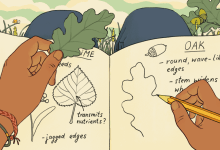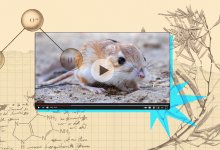Science
Explore and share tips, strategies, and resources for helping students develop in science.
Boosting Midyear Engagement With Place-Based PBL
High school teachers can build projects around issues in the local community to motivate students before and after winter break.3.1kYour content has been saved!
Go to My Saved Content.Exploring Before Explaining Sparks Learning
New elementary science teachers can build student engagement and enhance learning by using the explore-before-explain approach.Your content has been saved!
Go to My Saved Content.Real, Fake, or Deepfake? This Lesson Helps Students Decide
Students examine videos and online information to investigate what is real and what is not in this engaging lesson.78.8kYour content has been saved!
Go to My Saved Content.Helping Teens Build Skills Through Station Rotation
When large concepts are broken into small chunks—and learned through hands-on activities—students find confidence to tackle new challenges.6kYour content has been saved!
Go to My Saved Content.Why Students Should Write in All Subjects
Writing improves learning by consolidating information in long-term memory, researchers explain. Plus, five engaging writing activities to use in all subjects.377.7kYour content has been saved!
Go to My Saved Content.Helping Students Look Beyond Grades With Visual Rubrics
When students see their content mastery mapped out, they’re more likely to understand their proficiency—and take ownership of their progress.Why Kids Should Nature Journal at All Grade Levels
A 2023 review makes a strong case that hands-on observation of natural phenomena has both academic and psychological benefits.Designing Science Inquiry: Claim + Evidence + Reasoning = Explanation
The Claim, Evidence, Reasoning framework is a scaffolded way to teach the scientific method.595.5kYour content has been saved!
Go to My Saved Content.Solidifying Core Concepts With Examples and Non-Examples
Asking students to identify an example of what something is—and importantly, what it isn’t—helps establish clarity and leaves little room for misconception.Teaching the Concept of Equity Through Gardening
Plants can illustrate how different people need different things to be nourished—and how equality and equity differ.192.7kYour content has been saved!
Go to My Saved Content.Applying Literacy Standards Across Content Areas
High school teachers in all classes can help students strengthen their reading, writing, speaking, and listening skills.Encouraging Collaboration With a Scientists Circle
This routine creates an equitable structure for sharing out ideas, questions, or evidence in science class—and helps ensure every student takes part.57.6kYour content has been saved!
Go to My Saved Content.Helping Students Become Active Participants in Science
High school science teachers can design tasks that not only develop students’ science skills but also change how they see themselves.1.4kYour content has been saved!
Go to My Saved Content.Boosting Engagement in Biology With Storylines
Organizing curriculum around a central story motivates students to advance the narrative while mastering advanced material.6kYour content has been saved!
Go to My Saved Content.Flipping the ‘I Do, We Do, You Do’ Model in Science Class
Instead of starting with a teacher’s explanation, many science lessons could begin with students exploring a phenomenon.












